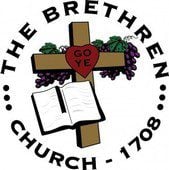What is the purpose behind the Book of James? What was the reason for James writing it? Here is a brief survey or summary of the Book of James.
Who was James?
The author of the Book of James was likely James, the half-brother of Jesus. Imagine growing up with Jesus and His never doing anything wrong or never sinning. It must have certainly drove Jesus’ brothers and sisters a bit crazy. It was only after Jesus death and resurrection that James repented and trusted in Christ. Before he was saved, he was very antagonistic toward Jesus as were the rest of his brothers. Listen to what they said to Jesus in John 7:3-5 “Leave here and go to Judea, that your disciples also may see the works you are doing. For no one works in secret if he seeks to be known openly. If you do these things, show yourself to the world.” For not even his brothers believed in him.”
When it was Written
The Book of James was likely written before AD 62 because that was when James was martyred and is believed to have been the first or second (next to Galatians) book written in the New Testament and was written around the late AD 50’s or just before. Even though James was not numbered among the apostles he was one of the early church leaders and one of the first martyred for his faith.
Quick Summary of James
The Book of James is close to being identified with wisdom literature because it contains so much biblical wisdom, however much of this book focuses on temptations and trials because when James wrote this, persecution was beginning to get worse for the early church. James wanted to encourage believers that it shouldn’t be surprising that they are suffering for Christ’s sake and that they should count it all joy (1:2). James gives several scathing rebukes against the rich (5:1-6). He also emphasized that a person who has no works must not be saved because faith without works is a dead faith (2:14-26). This is greatly misunderstood because although we are not saved by works a saved person will naturally produce works and James writes that faith should activate works in us (2:22).
Who was it Written To?
Clearly it was written to the Jewish Christians “to the twelve tribes which are scattered abroad” (1:1) even though most of this books principles are applicable to believers today. The Jews had already suffered for hundreds of years just for being Jewish, even before they repented and turned to Christ, but a Jew who was also a believer now had both the Roman authorities and the Jewish Religious leaders persecuting them and so James was trying to encourage them that these trials were part of God’s perfecting work in them (1:2-4).
A Survey of the Book of James
James really reassures the believer that their faith is being tested to reveal whether it is genuine or not and to also have this testing refine them (1:2-12) and that we are all drawn away by our own lusts and its not God Who tempts us to sin (1:12-15). James informs the church that Word of God is able to save (1:21) and so they must be doers of the law and only hearers of it (1:22-25) and that the tongue betrays what is really in a person’s heart. James boils down for us what true religion is: visiting the fatherless and the widows in their affliction (heartaches and suffering) and not allowing the world to pollute them (1:27).
To have regard for the rich over the poor is a great sin to God because God is no respecter of persons (2:2-9) because the rich have already have enough problems of their own. James goes on to say that a person is not saved by works but a saved person works (2:14-26) as a natural result of their being saved. He warns against the unbridled power of the tongue which is so tiny but can set a whole forest ablaze (3:1-12). If a believer claims to know Christ but seeks to please the world then they are actually enemies of God (4:4-5). This can create pride in us and God is opposed to (at war with in the Greek) the proud and He will grace only to those who are humble (4:6).
James returns his focus again on the rich because of their exploitation of the poor and the laborers (5:1-6), instead they should be praying for the sick (5:13-14) and pray in faith (5:15-18), and finally, if you see your brother or sister either teaching or learning error, attempt to turn them from that error back to the truth (5:19) because turning one from sin and the “error of his way” can “save a soul from death” and this will cover much of their own faults (5:20).
Conclusion
James has so much wisdom in such a small book that it’s like trying to get a drink of water from a fire hose. There is so much packed into such a small space that you could easily take a year unpacking the truths that this book contains. Like the Bible itself, which in an economy of few words, can speak voluminous truths that is like a beef bouillon cube, being so highly concentrated that even in a hundred lifetimes it could never be exhausted. This is because God, the true Author of the Bible, is infinite in wisdom and knowledge and even if a person were to study the Bible for all eternity, there would still be at least a little bit more to learn from it. This also describes the Book of James. It is full of wisdom and like the Bible itself, it comforts the afflicted but it afflicts the comfortable.
Another Reading on Patheos to Check Out: What Did Jesus Really Look Like: A Look at the Bible Facts
 Article by Jack Wellman
Article by Jack Wellman
Jack Wellman is Pastor of the Mulvane Brethren church in Mulvane Kansas. Jack is also the Senior Writer at What Christians Want To Know whose mission is to equip, encourage, and energize Christians and to address questions about the believer’s daily walk with God and the Bible. You can follow Jack on Google Plus or check out his book Blind Chance or Intelligent Design available on Amazon
















